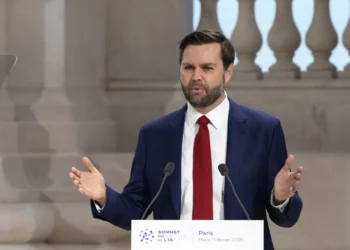His Majesty, King Charles has expressed deep sorrow over the demise of his mother Queen Elizabeth II.
The UK’s longest-serving monarch, died at Balmoral aged 96, after reigning for 70 years.Her family gathered at her Scottish estate after concerns grew about her health earlier on Thursday.
Her eldest son Charles, the former Prince of Wales, will lead the country in mourning as the new King and head of state for 14 Commonwealth realms.
Contained in a statement, he revealed that: “The death of my beloved mother Her Majesty the Queen, is a moment of the greatest sadness for me and all members of my family”.
“We mourn profoundly the passing of a cherished Sovereign and a much-loved Mother. I know her loss will be deeply felt throughout the country, the Realms and the Commonwealth, and by countless people around the world.”
King Charles III
His Majesty the King noted that during the period of mourning and change, he and his family would be “comforted and sustained by our knowledge of the respect and deep affection in which The Queen was so widely held”.
Queen Elizabeth II’s tenure as head of state spanned post-war austerity, the transition from empire to Commonwealth, the end of the Cold War and the UK’s entry into – and withdrawal from – the European Union.
Her reign spanned 15 prime ministers starting with Winston Churchill, born in 1874, and including Ms Truss, born 101 years later in 1975. She held weekly audiences with her prime minister throughout her reign.
Charles is the new King
At the moment the Queen died, the throne passed immediately and without ceremony to the heir, Charles, the former Prince of Wales. However, there are a number of practical and traditional steps which he must go through to be crowned King.
For one thing, he will be known as King Charles III. That was the first decision of the new king’s reign. He could have chosen from any of his four names – Charles Philip Arthur George.
He is not the only one who faces a change of title. Although he is heir to the throne, Prince William will not automatically become Prince of Wales. However, he immediately inherits his father’s other title, Duke of Cornwall. His wife Catherine will be known as the Duchess of Cornwall.
There will also be a new title for Charles’ wife, whose full title will be Queen Consort – consort is the term used for the spouse of the monarch.
In the first 24 hours or so after his mother’s death, Charles will be officially proclaimed King. This happens at St James’s Palace in London, in front of a ceremonial body known as the Accession Council.
This is made up of members of the Privy Council – a group of senior MPs, past and present, and peers – as well as some senior civil servants, Commonwealth high commissioners, and the Lord Mayor of London.
More than 700 people are entitled in theory to attend, but given the short notice, the actual number is likely to be far fewer. At the last Accession Council in 1952, about 200 attended. The King does not traditionally attend the Accession.
At the meeting, the death of Queen Elizabeth will be announced by the Lord President of the Privy Council (currently Penny Mordaunt MP), and a proclamation will be read aloud.
The wording of the proclamation can change, but it has traditionally been a series of prayers and pledges, commending the previous monarch and pledging support for the new one.
READ ALSO: Breaking News: UK’s Longest Serving Monarch, Queen Elizabeth II Dies



















